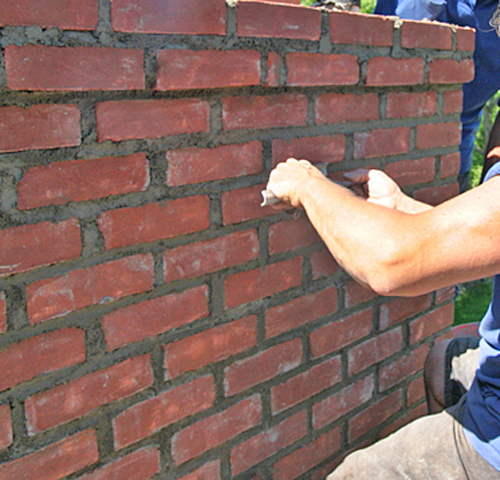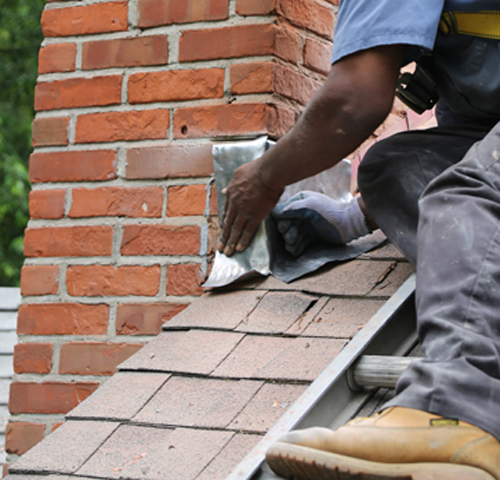Fact: water causes more damage to masonry chimneys than fire. At first glance, you’re probably thinking that there is no way it can be possible, but let’s take some time to look at it. Your roof and eaves protect the majority of the brickwork and other materials that make up your home; however, there is one glaring exception—your chimney. It stands tall above your roof, constantly exposed to all of nature’s elements: rain, snow, and freeze/thaw cycles. A masonry chimney is constructed of a variety of masonry and metal materials, including brick, mortar, tile, steel and cast iron. All of these materials face accelerated deterioration if exposed to prolonged contact with water.
 Chimney Materials
Chimney Materials
Water in your chimney can cause rust in steel and cast iron components, which ultimately weakens or destroys them altogether. Water penetration can cause interior and exterior damage to your home and masonry chimney including:
- Broken brickwork
- Deteriorated firebox assemblies
- Rusted damper assemblies
- Rotted adjacent wood and ruined wall coverings
- Deteriorated mortar
- Cracked flue liners
Most masonry materials are porous and will soak up any available water, which, during the springtime, is overabundant. Common brick is like a sponge, absorbing water and wicking moisture to your chimney’s interior. Defective mortar joints or the use of improper mortar or brick can greatly increase the tendency to absorb and convey water to the interior of the masonry chimney structure. All of these things combined greatly compromise the overall structure of your chimney as a whole.
Waterproofing Materials
ChimneySaver products have been developed specifically for use as waterproofing agents on masonry chimneys. These formulas are vapor permeable, which means that they won’t trap water vapors that may pass through the bricks when the chimney is in use. Thus water that had penetrated the chimney, or moisture that has originated from inside, is allowed to escape, while the waterproofing agent itself prevents additional water from entering from the outside. Paint, or any non-vapor permeable water sealer, should never be used as a waterproofing agent. Moisture from a variety of sources is always present in masonry and concrete. Sealers and silicone coatings form a water resistant surface film, which traps water vapors inside. If these vapors can’t escape, they will contribute to spalling, scaling, deterioration, and free-thaw damage, which only accelerate your chimney’s deterioration.
 Flashing Materials
Flashing Materials
Chimneys are notorious for leaking, and the culprit is almost always the flashing, which lies at the point where the chimney rises above the roof. It keeps water out of the chimney, protecting both the flue and roof. Flashings are made from a variety of materials (e.g., aluminum, copper, galvanized steel, and/or tin). You’ll want to have new chimney flashing installed if it’s missing, rusted through, falling out or completely covered with roofing tar (a common short-term fix that’s sure to be hiding bigger problems). Many homeowners also opt to have new flashing installed when having new shingles put on because they want it to last as long as the new roofing (anywhere from 25-40 years). If your flashing looks to be in good shape, re-caulking will often take care of the problem. However, caulk is not a substitute for properly overlapped flashing materials.
Water damage to masonry chimneys is usually a slow, subtle process that sneaks up on homeowners. Unfortunately, the problem often doesn’t reveal itself to the homeowners until it has become quite serious. Although available waterproofing and flashing repair/replacement measures may cost a little more than some homeowners want to pay, they will save you the major expense of large masonry repairs or rebuilding of your entire chimney in the not too distant future, and, as such, represent a wise investment in your home. The last thing you want to do is hire someone that might not have the experience required for the job at hand and put your family or your home at even more risk. Contact us to learn why Fluesbrothers Chimney Service is your best choice.



